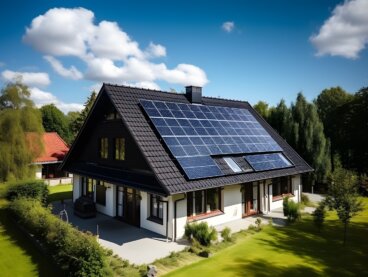5 Steps to Save on Your Water Bill

On a global level, different measures have been carried out to alleviate desertification and improve the environment. It’s in our hands to leave the planet in a better condition for future generations. Therefore, we’re going to learn about five steps to save on your water bill.
At home, we usually use different devices and resources to promote personal hygiene. We use the shower, toilet, sink, dishwasher, washing machine and so on. All of these consume a lot of water and if you’ve got several people living in your household, the expense multiplies.
The problem may be greater if you add that the price of the invoice increases with high consumption. Therefore, it is time to look for solutions.
1. Household appliances

Many times we make the mistake of running the washing machine containing just a few clothes or running the dishwasher with few dishes. Instead of doing this, why don’t you wait and fill them with as many items as possible?
You can achieve the same result and, in turn, you won’t waste any water. In this way, you’ll achieve a higher level of efficiency.
Although it may not seem like it, if you carry out this action over a long period of time, you’ll soon see that the savings are considerable. At the end of the week, you’ll have reduced the use of these appliances by up to 40 percent.
2. Don’t waste when you shower
We agree that daily grooming is necessary. A good shower every day helps us to feel good and be more hygienic. However, we don’t seem to know how to manage them properly. Therefore, the following aspects must be taken into account:
- It’s been found that it’s in the shower where we waste the most water. While we’re soaping we leave the faucet running, thinking that it’ll be for a short time. But, if we add this up over the course of a year, we’d be scared to see the figures.
- The most appropriate process is the following: we open the shower, get wet and turn it off, then we proceed to use the gel and shampoo. Finally, we wash the suds away quickly, and in a very short time, we’ve achieved the required result.
- Another issue to keep in mind is spending too long in the shower. It’s estimated that we can use between 150 – 200 liters of water in a shower and, in reality, this data could be reduced.
3. What’s better, a shower or a bath?
If you’ve got a bathtub at home, you’ll probably have filled it on more than one occasion. Instead of taking relaxing baths often, you can take quick showers and reserve one day a week for the bath that you enjoy.
However, if you can avoid filling the bathtub right up, so much the better. This saves a considerable amount of water, while the shower requires less and, after all, the shower action is faster.

4. The ecological dry toilet: saving on the water bill
Every day we use the toilet. This means pulling the chain with each use, which means up to ten liters of water each time we press the button to eliminate waste.
Obviously, you’ve got to use water for hygiene. Instead, there are other solutions such as the ecological dry bath. For this, sawdust or special products are used to avoid bad odors.
This resource is often present in country or rural homes. It’s rare in city apartments, but people are becoming more aware and turn to these devices to help the environment.
5. Use of water in cleaning
To clean the home we need water. If you’re going to scrub the floors, reuse the same water for other purposes. Such as washing your cleaning cloths in the same water.
Whenever we can, it’s convenient to resort not only to water as a solution. Actually, there are other measures that can be useful to save on the water bill.
All cited sources were thoroughly reviewed by our team to ensure their quality, reliability, currency, and validity. The bibliography of this article was considered reliable and of academic or scientific accuracy.
- Buendía Abril, Pedro et al.: El agua: un recurso escaso, Secretaría General Técnica, 2010.








